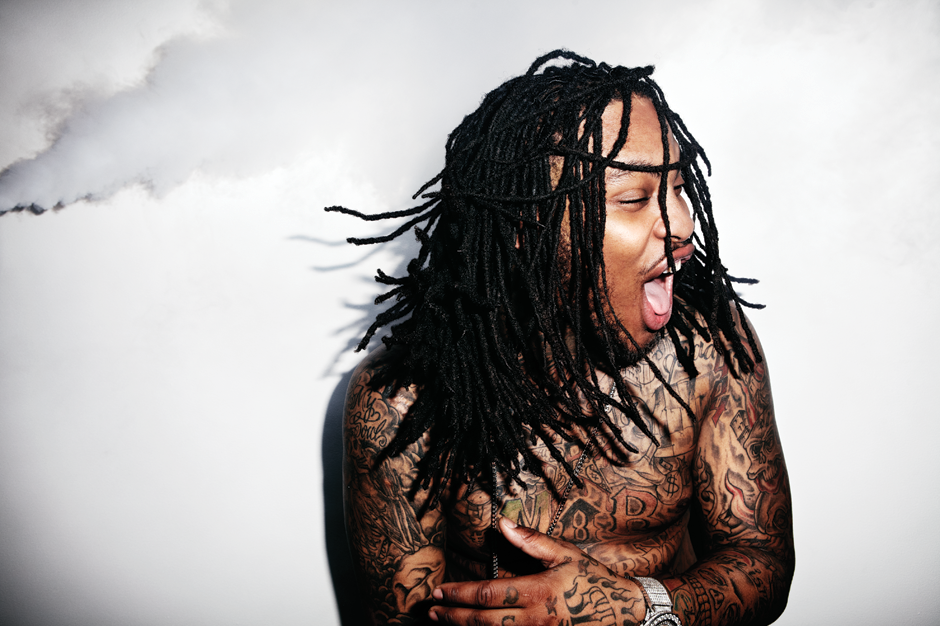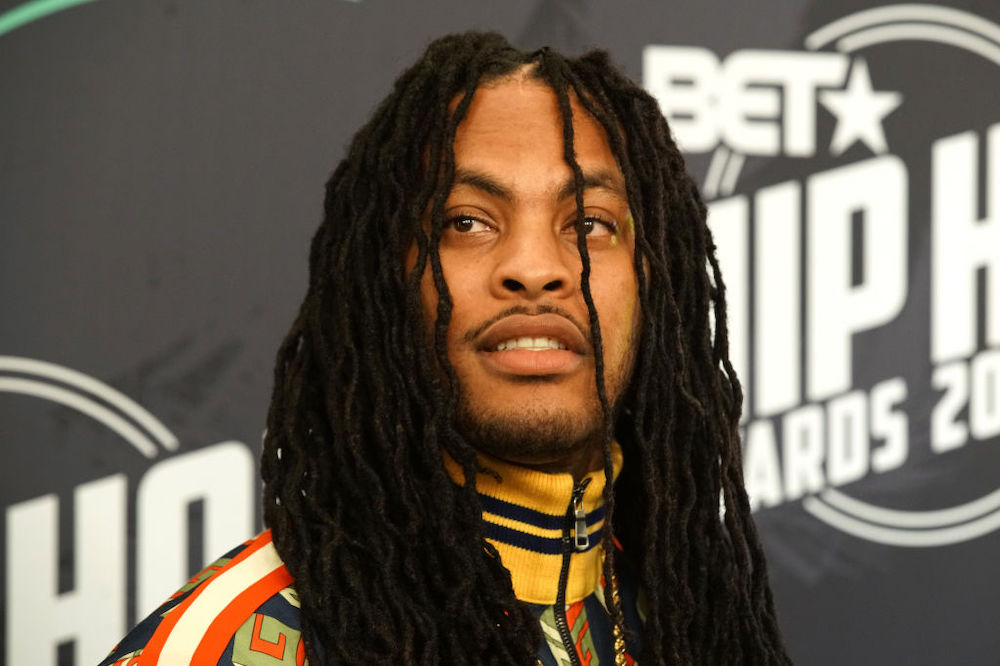“When my little brother died, I said ‘fuck school!’ ” That line from Waka Flocka Flame’s “Hard In Da Paint,” framed his pissed-off post-crunk around a tragedy horrible enough to explain Flockaveli‘s hour of gun shots, shouts, and fuck-you-up chants. And there’s a simple poetry to that exhortation. Notice that the line doesn’t justify his decision, it simply states the facts. This is where Flocka’s head went after the death of his brother.
Anger fueled Flocka’s debut album, placing it in a long tradition of pissed off hard-heads like M.O.P. And Three 6 Mafia, and standing out amongst major label releases filled with friendly radio moves and cute crossover attempts. There was none of that on Flockaveli. And though, perhaps too much was made of that “Hard in Da Paint” line, all in an attempt to turn Flockaveli‘s low brow brilliance into something more socially acceptable, it realistically represented how most people mourn: We rage-out with abandon, dancing and elbow-throwing the pain away. And every once in a while, we actually blurt out the ugly truth.
Hanging in the background of Flocka’s sophomore album Triple F: Friends, Fans, and Family, is the death of 1017 Brick Squad member Slim Dunkin, who was killed in a recording studio in December of last year. The album’s dedicated to Dunkin, and the sober outro begins like this: “My partner got murdered, friends turning phony / Next door neighbor trying to put the people on me / Life’s a bitch, I see a brother’s death creeping on me / Pain, I write it on me, watch these labels try to clone me.”
Clearly, Flocka has plenty of reasons to carry Flockaveli‘s nihilism over to Triple F. His sophomore album’s thesis could’ve been, “When my friend Slim Dunkin died, I said fuck everything.” Instead, we find Flocka developing a more healthy response to death and loss and in his own brutally direct way, pondering the contingencies of interpersonal relationships. He sounds worldly-wise on that “Triple F Outro,” and the Meek Mill-assisted “Let Dem Guns Blam,” finds flocking intoning, “Friends turned to enemies/ Enemies turned to friends,” painfully aware that alliances and emotions are always adjusting. Plenty of rap songs prattle on about homies morphing into haters, but very few admit that sometimes, we forgive those assholes from the past.
Triple F is still Flocka’s crossover album, though it’s a very good, strangely positive one that doesn’t leave any of his debut’s raw energy or just-below-the-surface pain behind. It’s an album about navigating the real world, in which compromise and acceptance are necessary. Not a bad conceit to hang the “sell-out” album around, right? Tyga and Flo-Rida pop up on the party pop of “Get Low,” but Triple F also houses appearances by Alley Boy, Wooh Da Kid (twice!), and Plies. The difference between what Flocka fans expect and what his label demands, are not as glaring or schizophrenic as they were on say, Yelawolf’s Radioactive or Nicki Minaj’s Roman Reloaded.
The pandering radio songs well, they pander all right, but they also sound quite good, especially “Fist Pump,” which seems to kick against the co-opting of Flocka’s aesthetic into the mainstream by out-Jersey Shore-ing the Jersey Shore hits station zombies. There is variety here, probably too much, particularly in comparison with Flockaveli‘s bold one-note power, but Flocka makes it work. This is actually a far more enjoyable and fun album than Flockaveli and most of it remains caveman-in-the-club crazy: “Rooster In My ‘Rari” is an instant wild-out classic, and “U Ain’t ‘Bout That Life” tests other rappers’ gangsta with nuance. “Lurkin'” and “Power of My Pen” feel like more desolate takes on Flockaveli‘s bangers.
Wizened appreciation rather than blind rage is the baseline emotion here. Triple F feels less like compromise than a healthy, preventative response to all-consuming anger and pain. Flocka’s operating on the same basic principles of Flockaveli‘s “I don’t give a fuck,” but here, he realizes that such feelings free him to do whatever he wants. And so, he fist pumps and he forgives his enemies and he moves from inexplicable cult rap star to bonafide star, with his dignity intact.
More Waka Flocka Flame:
• Waka Flocka Flame: The SPIN Cover Shoot
• Waka Flocka Flame Goes Boom: Cover Story





